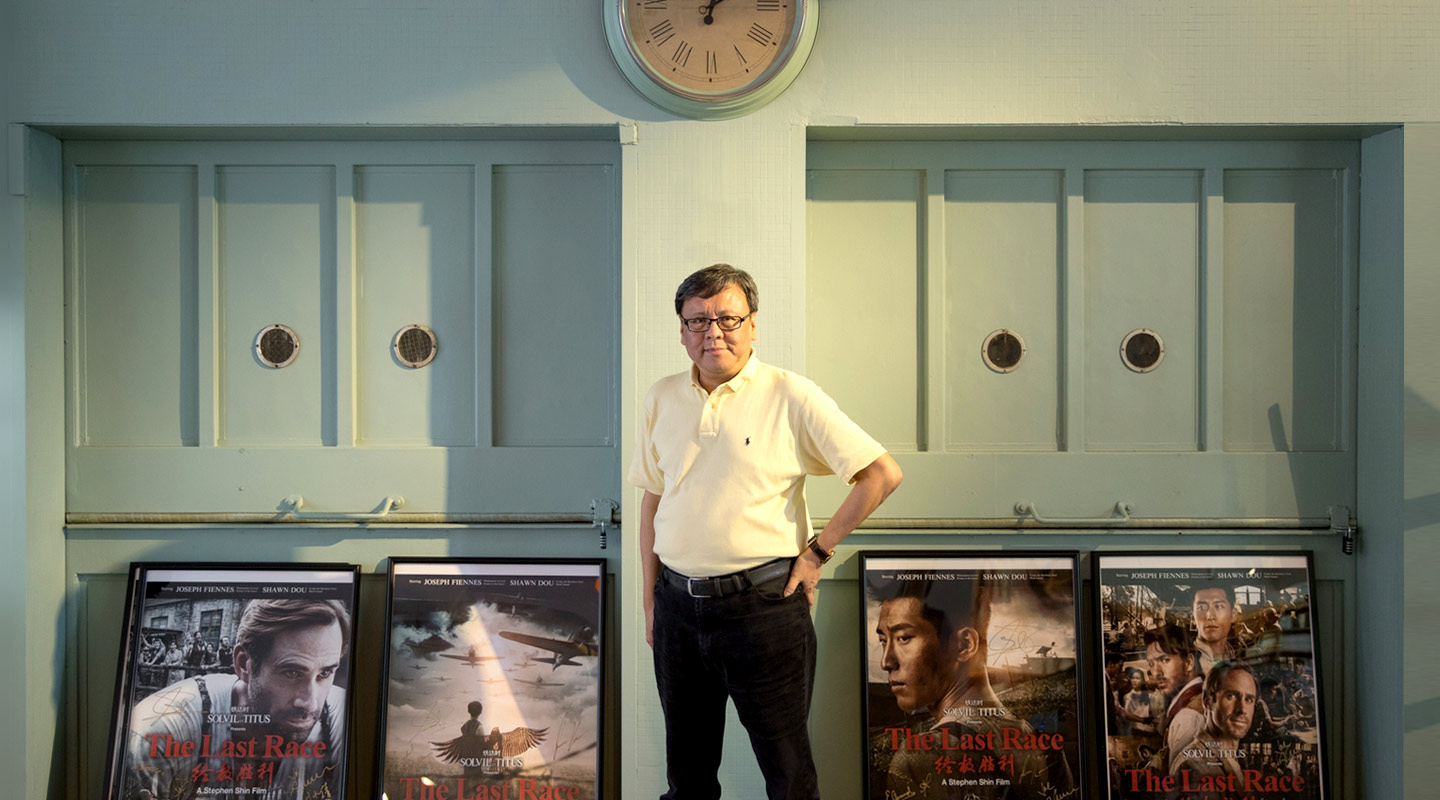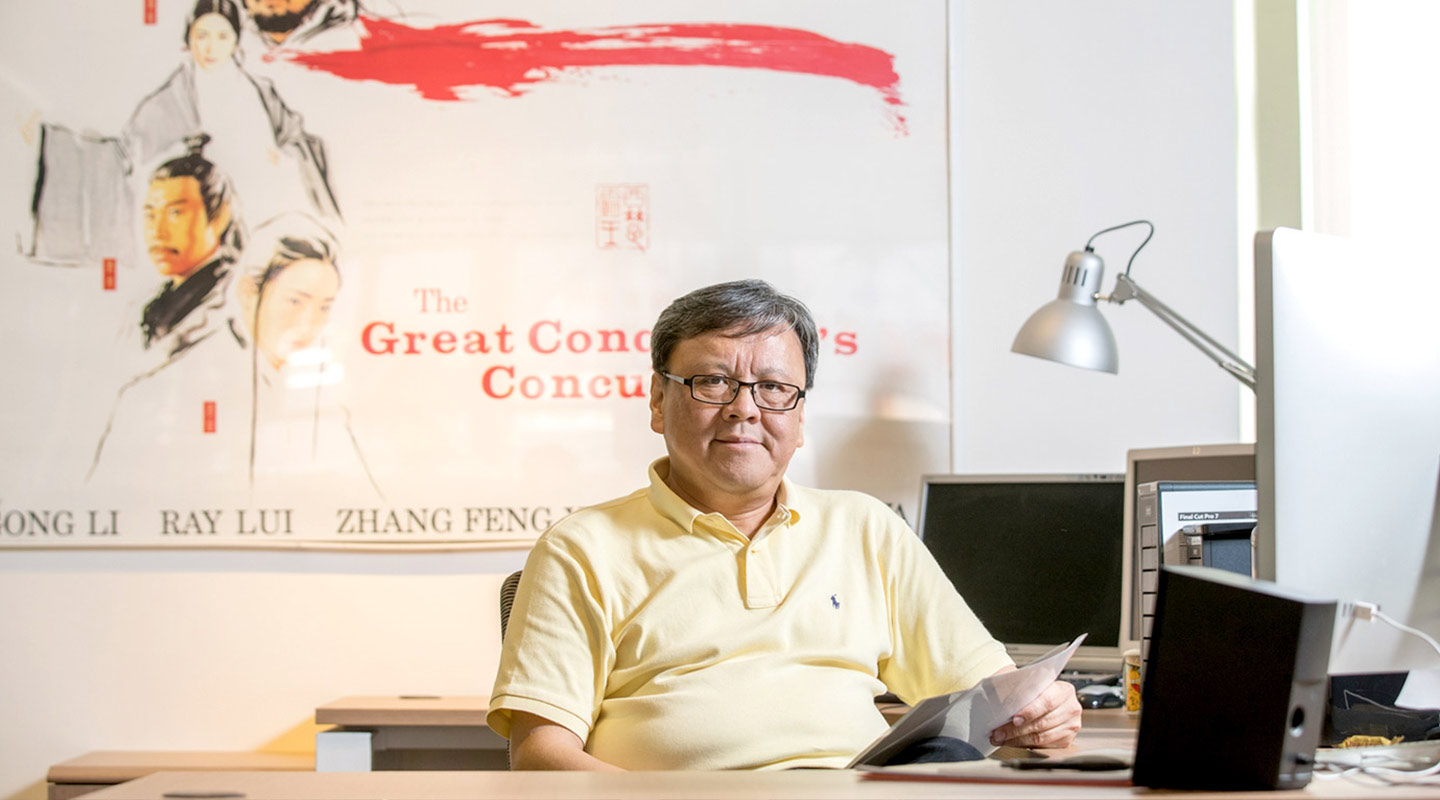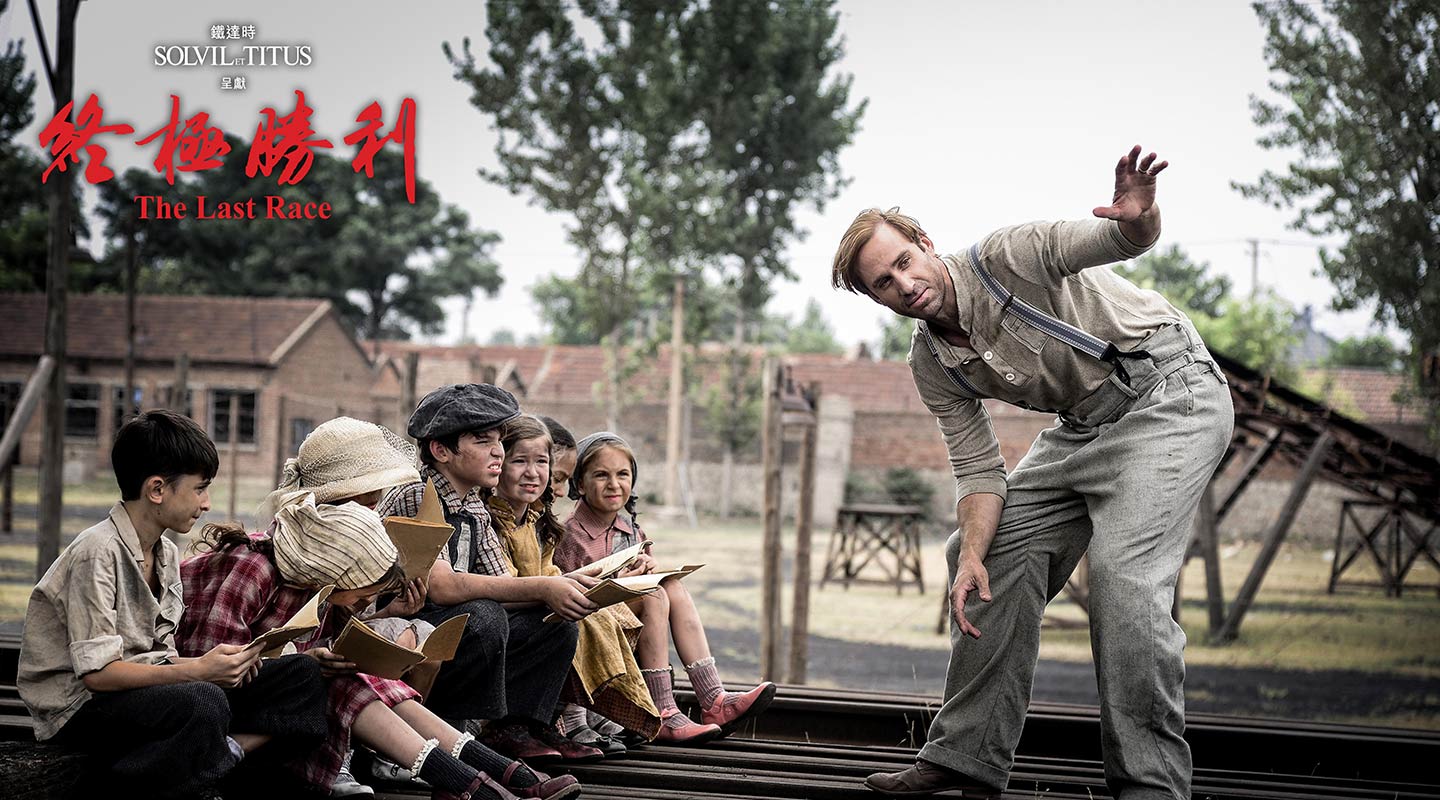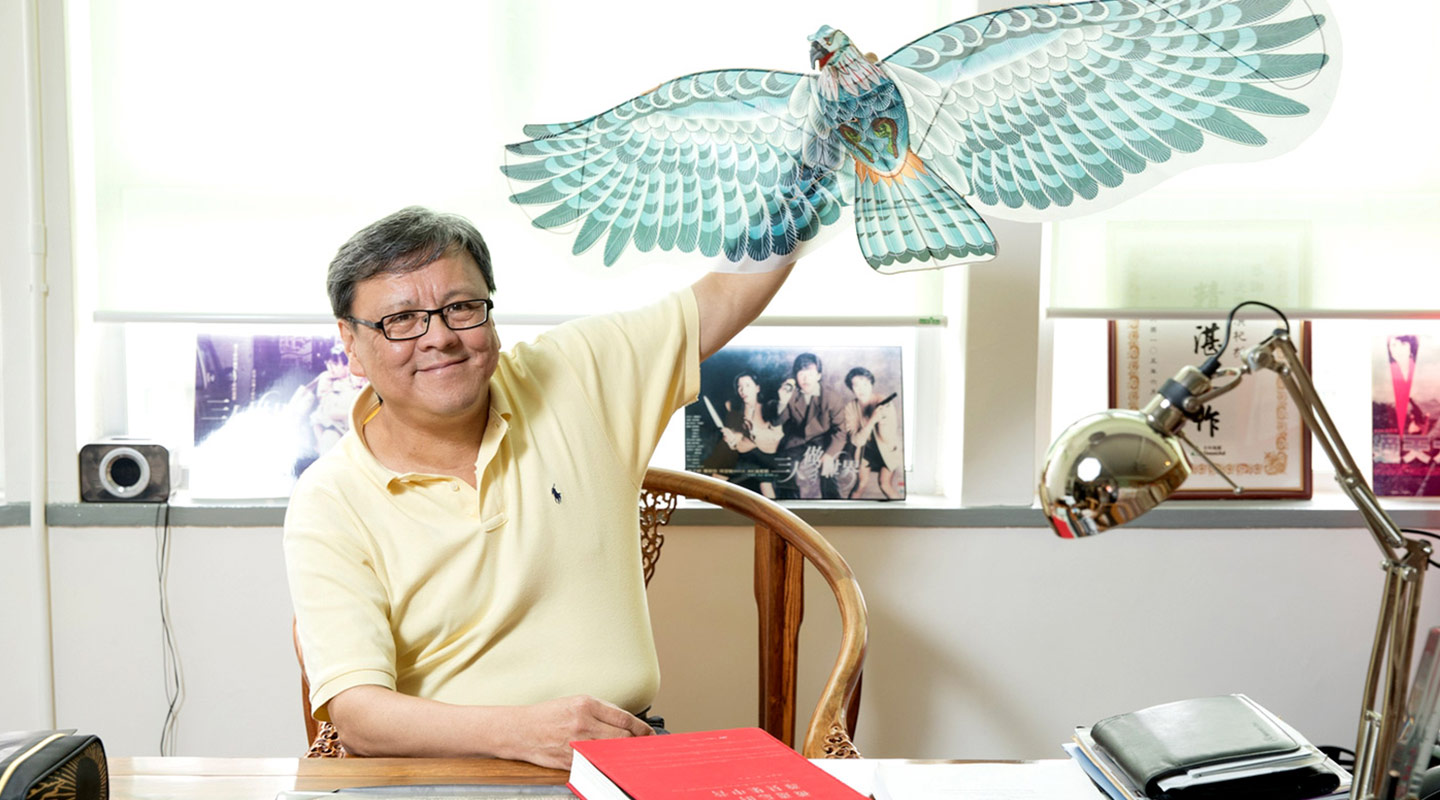Dear readers, With the launch of e-newsletter CUHK in Focus, CUHKUPDates has retired and this site will no longer be updated. To stay abreast of the University’s latest news, please go to https://focus.cuhk.edu.hk. Thank you.
40 Years a Filmmaker
Sociology alumnus Stephen Shin shares the proudest moments of his directorial career

Stephen Shin might be an unfamiliar name to the younger generations of movie goers, but those old enough to remember will certainly recall the popular hits he created in the 1980s and 1990s, including the yuppie comedy Heart to Hearts, the female secret agent flick Black Cat and the historical epic The Great Conqueror’s Concubine. In more recent years, The Assassin produced by him shone at the Cannes Film Festival.
Stephen, who is 66, graduated from the Department of Sociology at CUHK in 1975. He noted that several other Hong Kong filmmaking and drama talents, like Michael Hui Koon-man, Ng Ho and Koo Tin-lung, were also sociology graduates. ‘The methodological training in sociology requires students to analyse social incidents from multiple perspectives. What seem like disparate incidents could be organized systematically to reveal a coherent pattern. Those trained in sociology are naturally able to produce screenplays and coordinate people from different walks of life.’

Stephen was formerly the Executive Director of D & B Films Company, a role he held from 1985 to 1992. Back in those years, he oversaw numerous movie projects and when asked about his favourite, Stephen replied: ‘Every one of them. I take pride in all those movies we made as they helped shape a yuppie culture unique to the local film industry.’ In the 1980s, the Hong Kong economy was taking off and spurring a new middle class. Stephen with his honed sensitivity to the developments began to focus on this emerging class. The result was Heart to Hearts, a light urban comedy praised for its refreshing theme, message and cast.
Stephen has also been noted for his ability to churn out box-office hits on a low budget. Determined to develop quality screenplays, he set up a script-writing team at D & B Films, which turned out to be a platform where film talents including Gordon Chan Kar-seung, Chan Hing-kai and Kim Yip Kwong-kim were nurtured.
In 1994, Stephen became one of the Hong Kong forerunners to partner filmmakers from mainland China and Taiwan for joint movie productions. That year, he directed The Great Conqueror’s Concubine, a sweeping historical epic starring Gong Li and produced by Zhang Yimou. Before the CGI (computer-generated imagery) age, it was a daunting challenge to direct battle scenes with hundreds of actors, extras and horses as Stephen did in the movie.
Subsequently, he relocated to mainland China and set up a Japanese-style emporium. But Stephen insisted that he had never left the film industry, for he was just waiting patiently for the right opportunity to present itself.
In 2012, he produced The Assassin, an art-house movie directed by Taiwanese auteur Hou Hsiao-hsien. When asked how Stephen contributed to its success, he quipped: ‘I could not have possibly surpassed an internationally acclaimed director like Hou in artistic vision and creativity. But I certainly helped him in areas where he was weak in—money, budget control and management. I had full control in getting investments for the film. I was also responsible for liaising with government departments on the mainland, like securing official approval for location filming in Mount Wudang.’

The Last Race, a Sino-American joint production shown in Hong Kong cinemas this June, is Stephen’s latest directorial effort, which stars Joseph Fiennes of Shakespeare in Love fame and sets in a Japanese internment camp in Shandong province during the Second World War.
Eric Liddell, the protagonist of the film, is a Scottish man born in Tianjin and an Olympics short-distance runner. When he returned to China for a teaching stint during the Second World War, he was caught by the Japanese army and interned in a concentration camp. He met Xu Niu, a Chinese rickshaw puller played by mainland actor Shawn Dou, and together the duo went about their mission to rescue the camp’s other prisoners of war.
Liddell’s heroics at the 1924 Paris Olympics, in the earlier part of his life, had been adapted into the Oscar-winning British film Chariots of Fire in 1981.
The filming of The Last Race took a decade to prepare. The research work was most time-consuming. Stephen travelled to the US, Canada and the UK to track down the war survivors, interviewing them and their descendants. The actual shooting was just as meticulous. The school auditorium where Liddell taught in had been torn down, so the director decided to have it recreated, right down to the architectural details of the British colonial structure, even though the auditorium scene lasted mere seconds in the movie.

Stephen admitted that he was dissatisfied with the censored version of The Last Race shown in the Hong Kong cinemas as 20 minutes’ worth of its footage were snipped off. On 14 November, he will screen the movie’s director cut at CUHK’s Sir Run Run Shaw Hall for the better appreciation of the University’s alumni.
During the two hours of this interview, Stephen spoke in a booming voice and laughed without any restraint, a hallmark of his vibrant personality. At the end of it, he immediately walked into another meeting to start a spirited discussion with three other filmmakers. ‘He touched down on the airport last night and had barely caught a wink since,’ his assistant told this author. Not only has he shown no signs of slowing down, the filmmaker seems relentlessly devoted to doing what he loves best—filmmaking—as he has done in the past 40 years.
Reported by Christine N., ISO
This article was originally published on CUHK Homepage in Nov 2016.